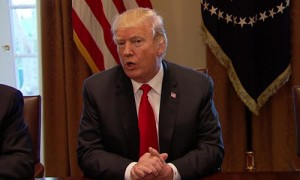Nobel-winning e-conomist Joseph Stiglitz would like gross domestic product (GDP) to go the way of the pyramid inch and the Arabic mile.
诺贝尔获奖经济学家约瑟夫·斯蒂格利茨希望国内生产总值(GDP)像金字塔尺和阿拉伯里这些古代单位一样被淘汰。
“The world is facing three existential crises: a climate crisis, an inequality crisis and a crisis in democracy,” he writes. “Yet the accepted ways by which we measure economic performance give absolutely no hint that we might be facing a problem.”
他写道:“世界正面临三个生存危机:气候危机、不平等危机和民主危机。然而我们衡量经济表现的公认方法完全没有示意我们可能遇到了问题。”
He’s right! In the United States, GDP is on the upswing, yet Los Angeles burns regularly, and the U.S. president faces impeachment.
他说得对!美国GDP增长迅速,但洛杉矶频繁起火,美国总统又面临弹劾。
The problem, he says, is that politicians see positive GDP figures and continue with the status quo. GDP gives no hint of environmental degradation or resource depletion, nor inequality, middle-class suffering, or lower standards of living.
他说问题就在于政治家们看到了积极的GDP数据,并继续保持现状。GDP并未表明环境恶化或资源枯竭,也没体现不平等、中产阶级的痛苦或生活水平的降低。
“If growth is not sustainable because we are destroying the environment and using up scarce natural resources our statistics should warn us,” he says. “It is clear that something is fundamentally wrong with the way we assess economic performance and social performance.” Preach.
他说:“如果经济增长不可持续是因为我们正在破坏环境并耗尽稀缺的自然资源,统计数据应该向我们发出警告。很明显我们衡量经济表现和社会表现的方法从根本上就是错的。”
His new book, Measuring What Counts: The Global Movement for Well-Being, cowritten with French e-conomists Jean-Paul Fitoussi and Martine Durand, provides a blueprint for how countries can use more appropriate metrics that account for details such as sustainability and—imagine!—how people feel about their lives.
他的新书《Measuring What Counts: The Global Movement for Well-Being》是和法国经济学家Jean-Paul Fitoussi、Martine Durand合著的,这本书为各国如何使用更合理的指标提供了蓝图,要考虑到各种细节,如可持续性和人们的幸福指数。
This all began a decade ago, when Nicolas Sarkozy, then the president of France, asked Stiglitz and fellow Nobel winner Amartya Sen, along with Fitoussi, to set up a commission studying GDP. They published their early deliberations in a book called Mismeasuring Our Lives.
这一切从十年前就已经开始了,后来成为法国总统的尼古拉·萨科齐当时让斯蒂格利茨和同样获得诺贝尔奖的Amartya Sen,以及Fitoussi共同设立研究GDP的委员会,他们在《Mismeasuring Our Lives》一书中给出了早期的审议意见。
From an e-conomist’s perspective, metrics are the key to everything. “If we measure the wrong thing, we will do the wrong thing,” writes Stiglitz.
从经济学家的角度来看指标是最重要的。斯蒂格利茨写道:“如果我们衡量的东西是错的,那我们的做法也是错的。”







